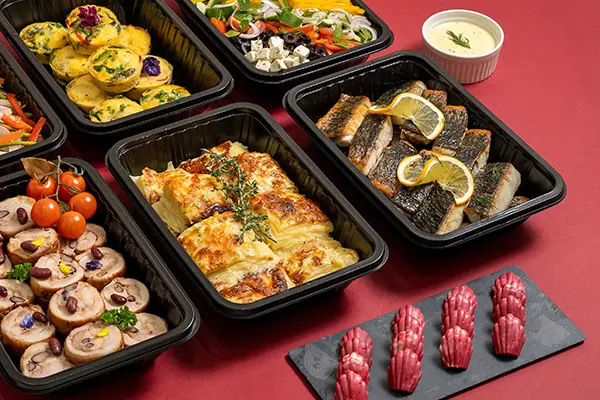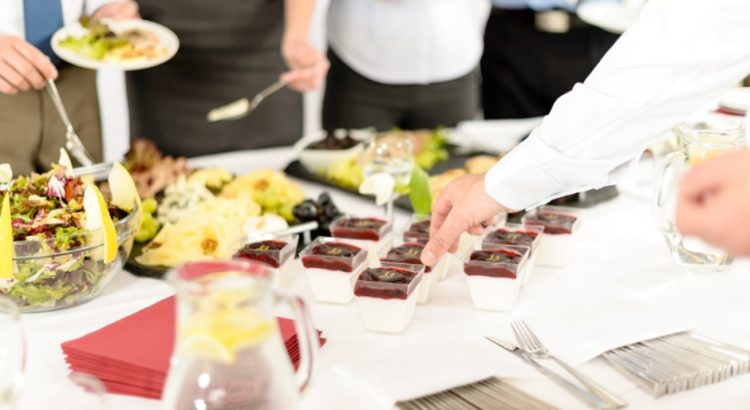Planning an event, whether it’s a corporate gathering, a birthday party, or a family reunion, often involves one crucial decision: how to feed your guests. In Singapore, where food is a beloved part of any celebration, choosing the right catering option can make or break your event. Two popular choices are mini buffet and full buffet catering, but which one is the right fit for your occasion? Let’s dive into the details to help you decide.
What Is a Mini Buffet?
A mini buffet is a scaled-down version of the traditional buffet. It’s designed for smaller gatherings, typically catering for 10 to 30 guests. Despite its smaller size, a mini buffet still offers a variety of dishes, ensuring that your guests can enjoy a well-rounded meal. It’s an excellent option for more intimate events, such as small office parties, casual get-togethers, or even a cosy family dinner.
One of the biggest advantages of a mini buffet is its convenience. The setup is straightforward, usually requiring less space and fewer resources than a full buffet. The caterer delivers the food ready to serve, often in disposable trays, which makes clean-up a breeze. This makes mini buffets a great choice for those who want to focus on enjoying the event rather than worrying about logistics.
What Is a Full Buffet?
A full buffet is what most people picture when they think of buffet catering. It’s a more elaborate spread, typically catering for larger groups of 30 or more. A full buffet offers a wide selection of dishes, from appetisers to desserts, with plenty of variety to satisfy diverse palates. This type of catering is ideal for grander events such as weddings, corporate functions, or milestone celebrations where you want to impress your guests with an abundant feast.
Full buffet catering often includes on-site staff to help with setup, serving, and clean-up, which adds a layer of convenience, especially for larger events. The presentation is usually more formal, with warming trays, chafing dishes, and sometimes even live cooking stations. If you’re looking to create a more luxurious dining experience for your guests, a full buffet is the way to go.

How to Choose Between a Mini Buffet and a Full Buffet
When deciding between a mini buffet and a full buffet, several factors come into play. Here’s a breakdown to help you determine which option might be better suited to your event:
1. Guest Count
The size of your guest list is one of the most important considerations. If you’re hosting a smaller event with fewer than 30 people, a mini buffet is likely the best option. It provides ample variety without overwhelming your guests or your budget. For larger events, a full buffet is more appropriate, offering the breadth of choice needed to cater to a bigger crowd.
2. Budget
Budget is another critical factor. Mini buffets are generally more cost-effective, making them ideal for smaller gatherings where you still want to offer a selection of dishes but need to keep costs down. Full buffet catering, while more expensive, delivers a more extensive spread and a higher level of service, which might be worth the investment for a special occasion.
3. Space
Consider the space available at your venue. Mini buffets require less room and can be set up in smaller spaces without much fuss. Full buffets, on the other hand, need more space for both the food display and for guests to move around comfortably. If your venue is compact, a mini buffet might be the more practical choice.
4. Event Type
The nature of your event can also influence your decision. For more formal occasions, such as weddings or corporate events, a full buffet adds a touch of elegance and abundance. Conversely, for casual gatherings, a mini buffet offers the perfect balance of variety and simplicity, allowing guests to enjoy a laid-back meal without the formality of a full buffet.
5. Variety of Dishes
If you want to provide an extensive range of dishes, a full buffet is the clear winner. It’s perfect for events where guests might have varied tastes and dietary requirements. A mini buffet, while still offering variety, will have a more limited selection, which might be sufficient for smaller, more intimate gatherings.
Conclusion
Choosing between a mini buffet and a full buffet ultimately comes down to the specifics of your event. If you’re hosting a smaller, more casual gathering, a mini buffet offers convenience, variety, and affordability. It’s an excellent choice for party catering in Singapore when you want to keep things simple yet satisfying. On the other hand, if you’re planning a larger event where impressing your guests is a priority, a full buffet provides a more comprehensive dining experience, with the added benefit of professional service.
No matter which option you choose, both mini buffet and full buffet catering in Singapore offer delicious solutions for feeding your guests. By considering the size, budget, space, and nature of your event, you can select the catering option that best suits your needs and ensures a memorable occasion for all.
Contact Elsie’s Kitchen to discover their generous variety of buffet options.





